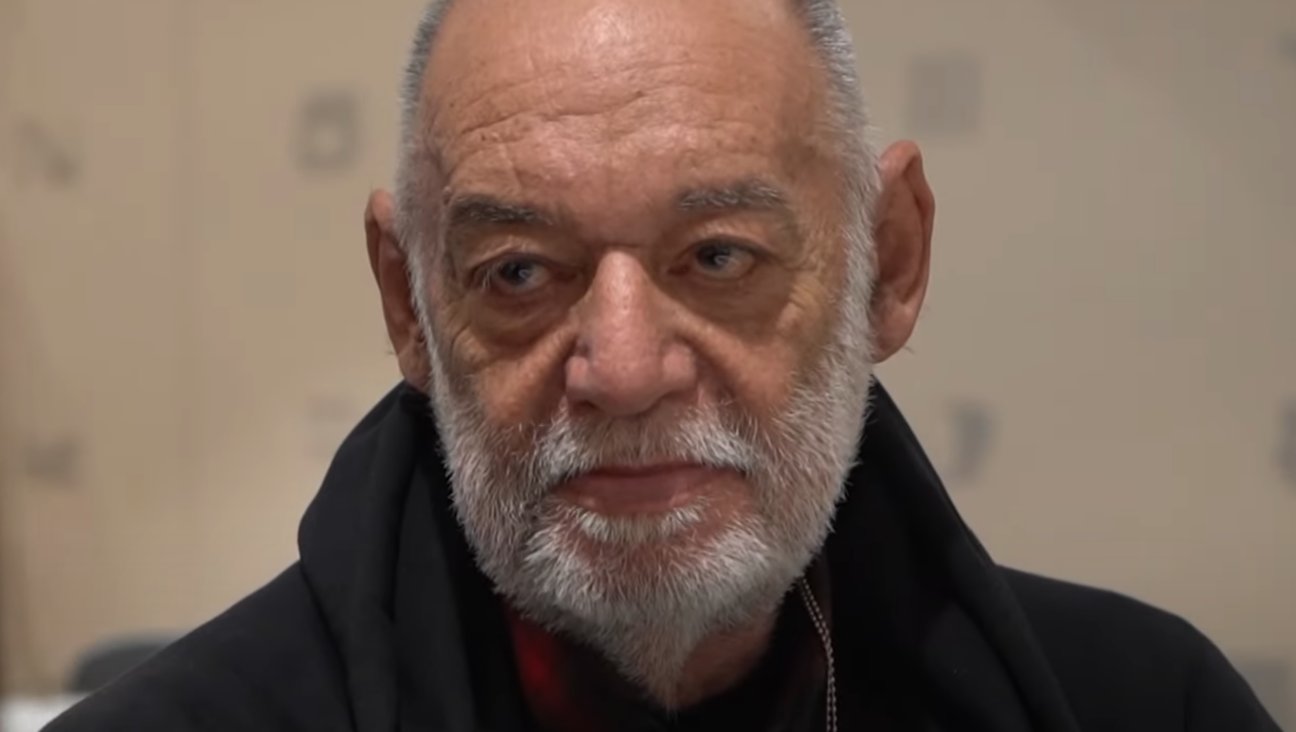Giuliani Stacks Campaign Staff With a Who’s Who Of Mideast Hawks
As the roster of Republican presidential hopefuls grapples with the seeming implosion of one-time front-runner John McCain’s candidacy, Rudolph Giuliani is taking steps to claim his place as the field’s leading hawk.
The former New York City mayor announced last week that he had assembled a team of foreign policy advisers featuring several prominent neoconservatives, including one of the movement’s founders, Norman Podhoretz. In addition to being an unwavering supporter of the war against Iraq, Podhoretz, a former editor of Commentary magazine, has grabbed headlines in recent months as one of most vocal proponents of American military action against Iran.
The eight-member advisory panel also includes several figures with experience in Israeli affairs. Giuliani’s chief foreign policy adviser, Charles Hill, served as a top aide to Secretary of State George Shultz in the Reagan administration and once served as political counselor to the American Embassy in Tel Aviv. The team also includes Martin Kramer, who is an expert on Islam at Harvard University and a fellow with both the pro-Israel Washington Institute for Near East Policy and the Jerusalem-based Shalem Center.
These selections show Giuliani is “very serious about his approach to ensuring the security and safety of Israel,” said Ben Chouake, head of the pro-Israel political action committee Norpac.
The July 10 announcement of Giuliani’s foreign policy team comes amid a period of uncertainty for the Republican presidential field. In recent weeks, Arizona Senator John McCain has seen an exodus of staff in the wake of disappointing second-quarter fundraising, while the buzz surrounding a near-certain bid by former Tennessee senator Fred Thompson continues to build.
Both McCain and Giuliani have turned to Republican heavy-hitters for foreign policy advice. While McCain does not have an official team, he has said publicly that he consults with Henry Kissinger, Brent Scowcroft, Robert Kagan, George Schultz, Lawrence Eagleburger, William Kristol and Robert Zoellick.
In recent months, Podhoretz has written and spoken out forcefully against the Iranian regime, and argued that ultimately, military confrontation will prove necessary.
“I believe,” Podhoretz told the Israeli broadcasting authority May 21, “contrary to what many people assume, that [Bush] will [attack Iran] before he leaves office.”
He added, “I think he agrees with the analysis that I offer that there is no alternative to military action.”
The Giuliani campaign did not respond to an inquiry from the Forward about whether the former mayor believes that military action against Tehran is necessary.
Giuliani is hanging on as the leading candidate among Republicans nationwide, according to an Associated Press-Ipsos poll released this week. He has the support of 21% to Fred Thompson’s 19%. Another AP poll showed one of Giuliani’s main Republican rivals, former Massachusetts governor Mitt Romney, leading the Republican field in New Hampshire, with 27% of the vote to Giuliani’s 20%.
As the socially moderate former mayor works to cement his bona fides as a foreign policy hawk, some of Giuliani’s Republican opponents say his choice of advisers could provide more ballast than boost.
One Republican operative who is not yet committed to a candidate said he viewed Giuliani’s advisers as “red-meat types” chosen to camouflage what he perceives as the former mayor’s foreign policy vulnerabilities, including a lack of firsthand experience and the fact that he left the Iraq Study Group, a ten-person bipartisan panel appointed by Congress to assess the situation in Iraq. Giuliani resigned citing previous scheduling commitments, but later said he did not believe an active presidential candidate should take part in an apolitical panel.
“They are extraordinarily capable people — that’s the upside,” said Washington attorney Mark Lezell, who is backing Thompson. “The concern with that particular team is that they have been at the forefront of policies that have yet to succeed and could well qualify as political baggage.”
While praising Giuliani’s foreign advisers as a “very impressive” group whose service would be most welcome in the Thompson campaign, Lezell stressed that Thompson is focused not on a wholesale re-imagining of the Middle East, as the neoconservatives were, but on an approach to the region “designed with implementation in mind.”
Romney too has indicated he plans to consider a variety of viewpoints.
“We need new thinking on foreign policy and an overarching strategy that can unite the United States and its allies — not around a particular political camp or foreign policy school, but around a shared understanding of how to meet a new generation of challenges,” Romney wrote in an article that appears in the July/August issue of the journal Foreign Affairs. In 2005, Romney’s policy director, former Minnesota representative Vin Weber, co-authored a bipartisan report on the Middle East with former secretary of state Madeleine Albright for the Council on Foreign Relations.
One Giuliani supporter said the mayor’s choices were not going to translate into potential vulnerabilities. Jason Epstein, a policy consultant backing Giuliani, said he viewed the selections as very consistent with Giuliani’s longstanding activism on foreign policy, and cautioned against lumping together all neoconservatives.
Epstein cited Martin Kramer’s June address at the Prague Conference on Democracy and Security — in which Kramer disagreed with the administration’s push for democratization in the Middle East — as evidence of the diversity that exists even within the neoconservative camp.
“Even if you accept the premise that neoconservativism is not currently in vogue, many individual neoconservatives are still relevant,” Epstein said.
A message from our Publisher & CEO Rachel Fishman Feddersen

I hope you appreciated this article. Before you go, I’d like to ask you to please support the Forward’s award-winning, nonprofit journalism so that we can be prepared for whatever news 2025 brings.
At a time when other newsrooms are closing or cutting back, the Forward has removed its paywall and invested additional resources to report on the ground from Israel and around the U.S. on the impact of the war, rising antisemitism and polarized discourse.
Readers like you make it all possible. Support our work by becoming a Forward Member and connect with our journalism and your community.
— Rachel Fishman Feddersen, Publisher and CEO





















